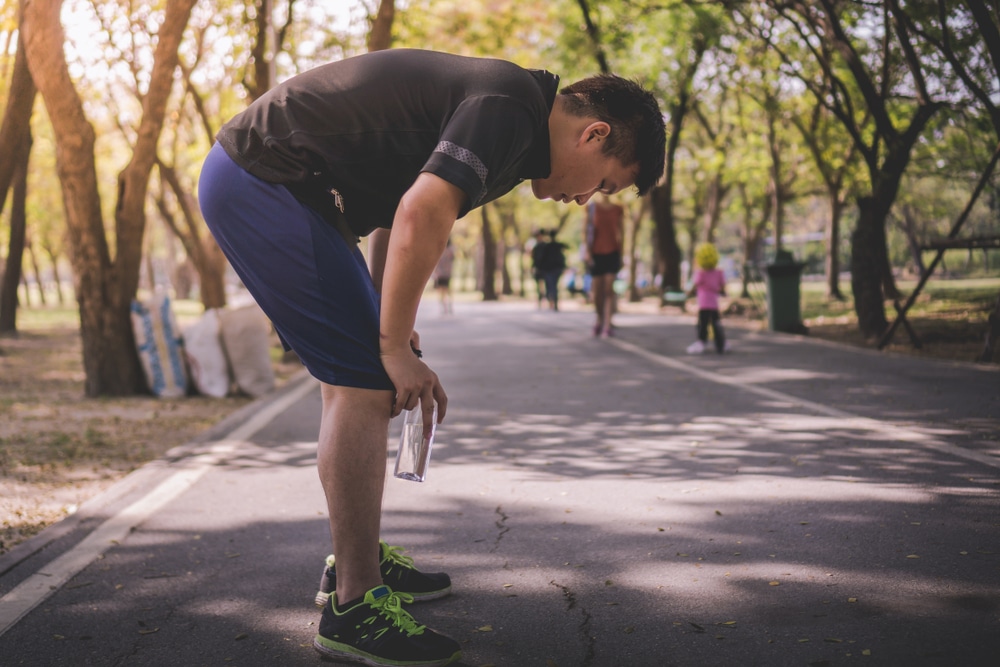Whether you are a competitive runner who does not want to miss out on your training or a casual runner who doesn’t want to miss your daily exercise routine, knowing if you should run while dealing with the common cold can be challenging.
Unfortunately, running with a cold is generally seen as something that you should avoid, regardless of whether it’s warm weather or during the winter months. As frustrating as it can be, your body is already weak, and the added strain of physical exercise can delay your recovery.
We have provided this in-depth guide to help you understand why running with a cold is not usually seen as a good idea. We will explain why running should be avoided while you are sick and what you can do to quicken your recovery while maintaining your fitness progress and running abilities.
So, let’s dive right in!
Why Should You Avoid Running with a Cold?

As you may already know, even when you have a mild cold, your body must work hard to fight off the viral infection. In fact, you experience many cold symptoms, like sore throat, chest congestion, chills, swollen glands, and aches, because your body’s immune response has triggered them.
While your body is in this weakened state, the best thing you can do is rest. Running, along with any other intense form of physical activity, can temporarily weaken your body’s immune system response. Any form of physical exercise simply places additional stress on your already weakened body and overloaded immune system.
If you choose to run while you are fighting off cold symptoms, it is likely that the following will occur:
You Will Delay Your Recovery Time
Given that running or jogging while you are suffering from the common cold can compromise your immune system’s ability to fight off the virus, it only makes sense that it can also delay your recovery time.
Where you might otherwise be able to fully recover in a matter of days, putting unnecessary strain on your body could extend your sickness by as much as weeks.
Your Symptoms Could Become More Pronounced
Whenever you are participating in an intense form of exercise, like running, your breathing will become heavier, and your heart rate will increase. If you are already coughing and finding it difficult to breathe due to the chest congestion from a cold, this can make things much worse. Heavier breathing can also irritate a sore throat.
Your body also produces an increased volume of mucus while you are exercising, which can worsen cold-related symptoms, such as a runny nose and overall congestion. Many people also experience muscle aches while they are sick. When you run with sore and fatigued muscles, you can drastically increase this soreness and muscle pain.
You Have an Increased Risk of Injuries
Given that your body is already weakened when you have a cold, running can increase the risk of injuring yourself.
Many people also find that their balance and overall coordination are off when feeling sick, especially if they have severe headaches. Naturally, this loss of balance further increases the chances that you will injure yourself while running.
You Can Spread the Cold Virus to Others
If you run while you are contagious, you risk spreading the virus to other runners. This is particularly concerning if you are running in a public space, like a park, or on a treadmill in a gym. Be a good member of the running community, and do not expose other runners to your illness.
As you can see, running while you have a cold is not a good idea. It is far better to focus on your recovery, so you can get back to feeling your best and running to your full potential.
What If You Are Training for an Upcoming Race?

Many runners, especially those that enter competitive races, must train at all costs, even if they feel sick. The truth is, it is far more important to prioritize your recovery and overall health than it is to not miss a few days of training.
Not only do you risk injuries and delay your recovery, but you also would not be able to train with maximum effort, so you would not miss much by resting. Simply put, pushing your body when you are feeling sick can set your training efforts back even further.
Do not worry if you cannot run for a week; you will not lose much of your fitness progress during such a short period. Instead, focus on rest and recovery!
What Types of Exercises Can You Do While Sick?
If you are adamant about not losing your fitness progress and do not want to fall behind on your race preparations, you can perform some basic stretches and yoga routines. Light walking can also be a good idea, but only if you feel up to it.
You should use this period of sickness to help your muscles recover. Focus on stretching and massaging the muscles, so they will be ready to go when you feel fully recovered and ready to run.
What Are the Best Ways to Beat a Cold and Start Running Again?
While you should always speak with a qualified doctor, the best ways to recover so you can get back to running are to simply give your body as much opportunity as possible to rest. Allow your immune system to focus on beating the virus.
You should also stay hydrated at all times and take over-the-counter cold medications as needed. While it can be difficult when you aren’t feeling your best, try to eat a healthy and nutritious diet. This can help to provide your immune system with the fuel it needs to tackle the cold virus.
Home remedies can also help relieve some of your symptoms, so there is no harm in trying out hot tea with honey and lemon and eating plenty of vitamin C-rich foods, like oranges. A simple humidifier can also help relieve congestion and the discomfort of a dry throat.
Final Words
When deciding if you should run while you are sick or injured, it is essential to listen to your body. If you feel off, give your body the rest and time it needs to recover properly. Provide your body with everything it needs to keep your immune system functioning to the best of its abilities.
Once your symptoms have subsided and you feel like yourself, you can gradually ease yourself into your regular running routine!
For more information about getting back into your running routine, we recommend reading How to Start Running Again After a Break – Make the Ultimate Comeback.


